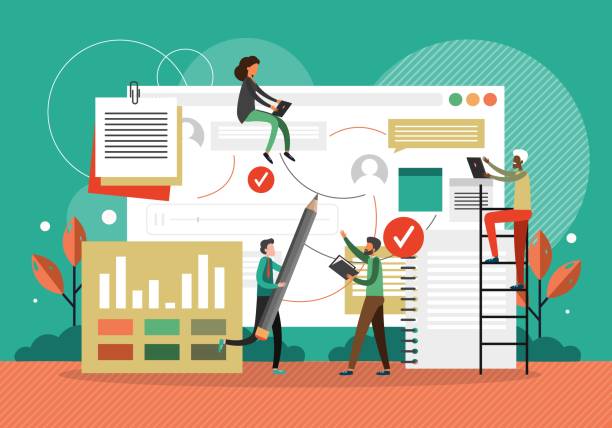Why all property managers need to have a property management platform
I have to admit I am still surprised when I meet a property manager who does not have a dedicated platform to help them, well, manage properties. To me, it seems like an automatic thing that you cannot do without. Imagine an accountant who did not use accounting software, or a retail store that did not have a POS. Despite this, many PM’s still go without a well designed and purpose built system to help them streamline all of their processes and manage their information and work in an efficient manner. I really think they should and here are some concepts that help explain why.
-
Professional credibility: Would you hire an accountant who did not use accounting software. Would you hire an architect who did not use CAD. Probably not, so it really amazes me that landlords are willing to hire property managers who do not use property management software. I know I wouldn’t. There is a lot of stuff to do to manage a property so for me it is really a no-brainer to have something that is modern, efficient and well designed. At a minimum, it needs to do accounting, rent collection, communication and store general information about the building like lockbox codes, address, owner information and otherwise. By showing prospective clients the tools you use to operate a modern and efficient operation, you will impress upon them that you can deliver great service quality and will look like a highly sophisticated professional. If you are not sure what that looks like or if anyone is doing it, take a look at this article from a local company in my hometown in Kelowna if you want to be impressed. If you are not doing this, someone else is and they will leave you in the dust, as will your clients.
-
Operational efficiency: A well compiled and integrated tech stack can help eliminate or streamline a lot of manual work. How many times have you scrambled to find the contact information of a tenant or owner? How many times did you forget to call a contractor to fix a problem a tenant told you about, or can’t remember which property a problem relates to? I am guessing this happens all of the time if you don’t use a purpose built system. Adopting a cloud based property management platform will provide you with a system built to elegantly organize all of this information and make it readily available. You will have access from any device and will be able to instantly search for any piece of information, check on the status of a repair ticket, update your vacancy listings and much more. If you activate a tenant portal, you can even get your tenants to take on data entry by creating their own tickets so you don’t even have to input them, and given that I have never met a person who says they like doing data entry, this should be quite exciting.
-
Digitized and automated rent collection: There is no process more important to owners and operators of real estate than rent collection. There are many options to provide greater reliability and visibility to this process, yet many operators still run around collecting paper based payments, or wait for them in the mail. It does not need to be this way, and landlords will love the enhanced control. By the same token, every tenant has a basic fixed monthly rent to pay. There can be additional items as well that may vary, but we can start with base rent. We know what this amount is and when it has to be paid. With a PAD agreement and digital rent collection automation, the system can take care of collecting payments from a choice of various payment methods and then update the books so there is less data entry to marking tenant accounts as paid, work typically done manually by a property manager or accounts receivable clerk. So again, we can reduce or eliminate much of this work. You can also enforce rules such as late payment penalty automation, NSF fee automation, and build in methods for collecting additional non-recurring amounts quite easily. As tenants have access, they can update their payment methods on their own if they get a new credit card or bank account so the property manager no longer needs to and even get access to credit if they think they may have trouble making an on-time payment. Managers then only need to deal with the exceptions such as certain NSFs’, tenants who deactivate their account or default. This is much less work than running around collecting checks, depositing them and then updating all the accounts manually, not to mention is typically free of errors since it is no longer being done by a person. There are many other processes that become more efficient with a well designed system, and I would love to talk to you about them.
-
Tenant retention in an increasingly high vacancy environment: Traditionally, landlords did not really need to be particularly concerned with tenant retention, as vacancy rates have always been very low and new tenants typically pay more than previous ones. In reality, landlords have an incentive to actually increase turnover as this helps grow rents much faster since increases are typically regulated to around the rate of inflation. With the current pandemic and changing trends in many traditionally attractive regions, landlords are seeing falling rents, higher vacancy rates and longer vacancy periods putting more power in the hands of the tenants. They are demanding better service in line with this trend and landlords need to deliver or they will not sign them. Providing a tenant portal rich with information about the property as well as how to make payments and otherwise communicate helps tenants feel better served as it is always available just like online banking and social media.
-
Employee recruitment and retention: It should come as no surprise that having high quality digital tools is important for recruitment. Real estate traditionally has an older average age when it comes to staffing as many firms are small and do not have the proactive recruitment of larger firms in other industries and sectors. I would not venture to say this is really changing that much however these younger professionals are now moving into the age groups that real estate firms typically hire from and are bringing their insatiable appetite for modern tech with them. Thus, real estate firms will start to feel the same “hiring pain” of a new generation of professionals that other industries have been seeing for many years and must adapt or will struggle to hire and retain talent.
To summarize, bringing on a dedicated property management system will save you a ton of time, eliminate clerical errors, accelerate your rent collection, cut down on data entry and make tenants happier. If you need help figuring out what features you need or which one is the best for you, give us a call.
Related articles

I recently had a conversation with the IT manager at one of my clients. One of the topics [...]

Background & Business Challenge Horizon Contracting provides landscape construction and maintenance services in addition to a variety of [...]

I recently had a meeting with a member of the leadership team of one of my clients. During [...]
